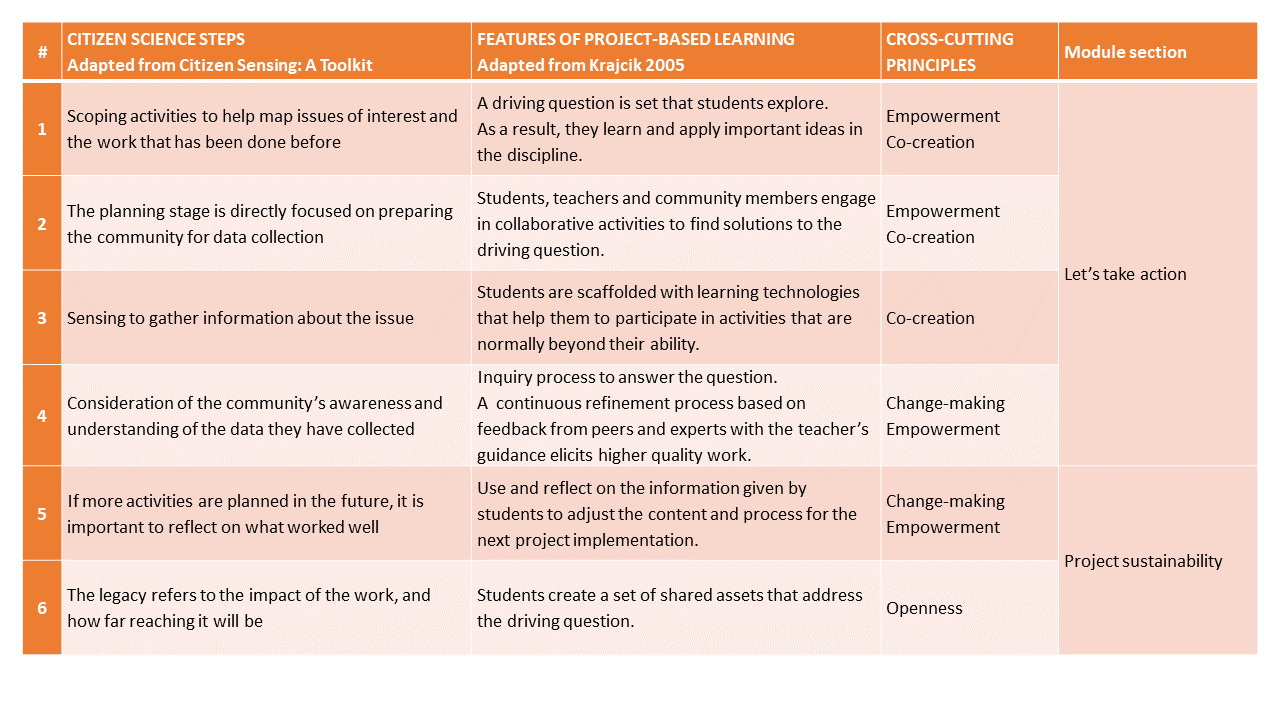Definition of crosscutting principles that will be developed in citizen science projects in schools
1. EMPOWERMENT
The feeling of taking control or increased responsibility for yourself and your environment. This can be encouraged with a combination of collaborative approaches and openness using technologies and data that address individual and community issues. This can lead to improved quality of life and greater power to make changes in corporations and governments.
2. CO-CREATION
The practice of collaborative development, and a way to describe an approach to a project using methods and tools for people to work together on a level playing field. Co-creation is a collaborative process between multiple individuals using a wide range of resources and ideas to create new actions and objects.
3. CHANGEMAKING
Our aim of making changes stretches beyond creating awareness of the development of purely technological solutions. It involves change in individuals, communities, institutions and/or cultures, and in thinking, attitudes, values and consciousness. We embrace community-led change.
4. OPENNESS
This applies to the transparency of the project organization, its data and actions.
Table 3. Correspondence between citizen science steps and the features of project-based learning

A core team that will guide all actions should be defined before
starting the project. Preferably, it should include the headteacher and
director of studies, teachers who are directly involved, and researchers.